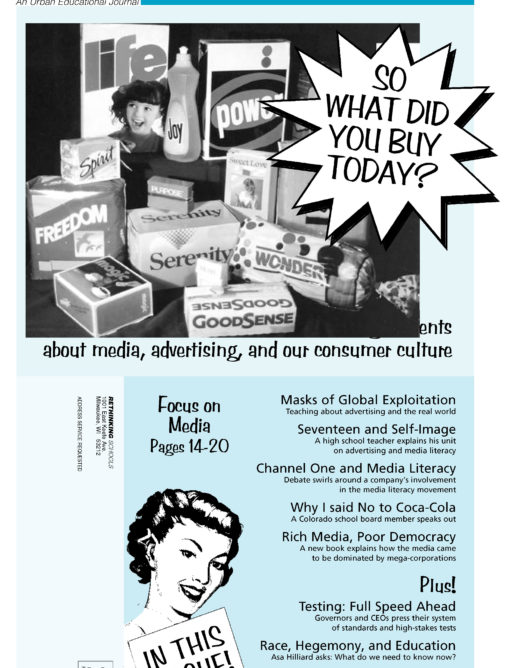Preview of Article:
Channel One Enters the Media Literacy Movement
“It’s gotten to the point where when I ask kids how school is going, they talk about the cool commercials they saw in class today,” Annerino says. Annerino is challenging what she calls “creeping commercialism” in the classroom, by offering media literacy workshops to students and teachers. The workshops are designed to teach young people how to analyze and understand the barrage of messages they receive daily from television, radio, computers, and advertising. Students in Annerino’s workshops pick apart print and television advertisements and analyze how advertisers target and manipulate teenagers into buying certain products and brands.
Last June, when Annerino heard that some 300 media literacy teachers from around the country were gathering in St. Paul, MN, for a National Media Education Conference (NMEC), she was eager to attend and swap teaching tips with colleagues. Walking into the conference headquarters however, she was surprised to discover that some of the very same corporate media giants she was dissecting in the classroom were underwriting the conference. Channel One, it turned out, was the conference’s main financial sponsor, to the tune of some $30,000, and most visible presence. Time-Warner, Turner Broadcasting, and Discovery Communications, were also sponsors.
“I felt undermined and betrayed,” Annerino says. “Here I am talking to parents and teachers about resisting Channel One’s commercialism of schools, and Channel One shows up touting themselves as media educators.”
Annerino is not alone in her criticism. A number of prominent media educators refused to attend the NMEC to protest Channel One’s sponsorship. Angry conference attendees, meanwhile, forced the meeting’s organizers to hold a special session to defend and debate Channel One’s presence. And the controversy has hardly ended there, spilling over into local media literacy meetings and Internet discussion groups.

